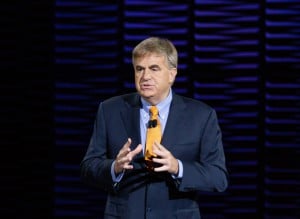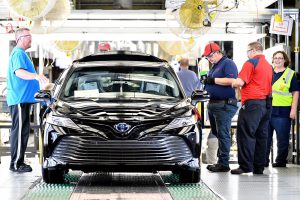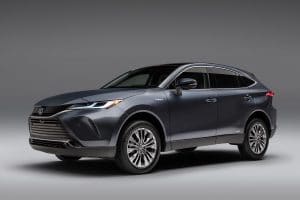
What looked to be a disastrous year for the American auto industry is turning out to be far better than expected, according to Bob Carter, the head of U.S. sales for Toyota.
While fleet business is well below normal – and likely to stay that way for quite some time – the Toyota executive vice president said retail sales have rebounded far faster than expected and will likely be reflected in solid earnings for the second half of the year.
“This fourth quarter,” said Carter, could be one of the finest quarters in automotive history, especially for Toyota. It’s really fascinating for me that the auto industry hasn’t just survived, it has really thrived through this pandemic.”
(Toyota dumping long-running Land Cruiser after 2021.)
Things didn’t look that way when the auto industry – like much of the U.S. – was forced to shut down in late March. April demand, on an annualized basis, fell to barely 8.8 million, down from the more than 17 million vehicles sold during all of 2019. And most industry analysts were expecting sales to stay in the dumpster for much of the rest of the year. Research firms like J.D. Power warned that total 2020 volume could drop to 12 million or less, depending on the shape of the overall economic recovery.

Though the year will still be one of the worst since the industry began rebounding from the Great Recession, it is on track to wrap up at a much healthier 14.5 million, Carter predicted, forecasting demand will climb to 15.5 million in 2021.
And things would be even better were it not for the sharp slump in fleet sales. In fact, the only real problem is the collapse of the travel industry and the resulting cuts by daily rental firms like the bankrupt Hertz.
Traditionally, such companies turn over their vehicles on a regular basis, but they’ve all but halted purchases since late winter, with no timetable for getting back to a more normal schedule, industry experts have warned.
“Things are absolutely strong and better than we expected six months ago (when) it looked completely bleak,” said Carter.
Toyota has fared especially well. Demand jumped 16% in October, the executive said during a web call with automotive journalists Thursday. And November sales are on track to rise between 6% and 7%, he added.
(Toyota betting all-wheel drive can save its passenger car line-up.)
If anything, said Carter, Toyota would be moving even more metal but for a shortage of supply. Virtually all manufacturers are struggling to rebuild inventories after the two-month COVID-driven shutdowns last spring. Toyota has found itself

especially short of key products, especially light trucks like the RAV4 SUV, the Tacoma pickup and the all-new Venza hybrid.
The automaker is pumping out product as quickly as possible, said Chris Reynolds, the U.S. manufacturing chief, and has added plenty of overtime, including Saturday shifts, at most of its North American plants. That said the often “uncomfortable and inconvenient” steps needed to deal with the pandemic – including not only masks and other personal protection gear but extended breaks to sanitize workstations – has slowed things down.”
“We are refilling the pipeline as quickly as possible,” said Reynolds, noting Toyota factories are now running at about 93.7% of their capacity, down from 95.5% at this time a year ago, said Reynolds, adding that has “exceeded our expectations.”
Toyota officials said they are optimistic the U.S. new car market will continue to rebound whatever happens with the 2020 presidential election, adding that the company is prepared to respond to the policies laid out by whomever wins. Where President Donald Trump has called for cuts to the Obama-era Corporate Average Fuel Economy standards, Democratic nominee Joe Biden is expected to restore the mandates and even increase pressure on manufacturers to electrify their product lines.
Though Toyota was a pioneer in hybrid technology with models like the Prius, it has been cautious about more advanced powertrains. It is only now ramping up its line-up of plug-in hybrids, plus rolling out a next-generation version of the Mirai hydrogen fuel-cell vehicle. And, while Carter cautioned that demand for all-electric products is picking up only slowly.
(Toyota riding wave of new product launches.)
“We’re the Macy’s department store of powertrains,” said Carter. Toyota will be ready with battery-electric vehicles when the demand is there. “The q,” he added, “ is when is the right time?”







